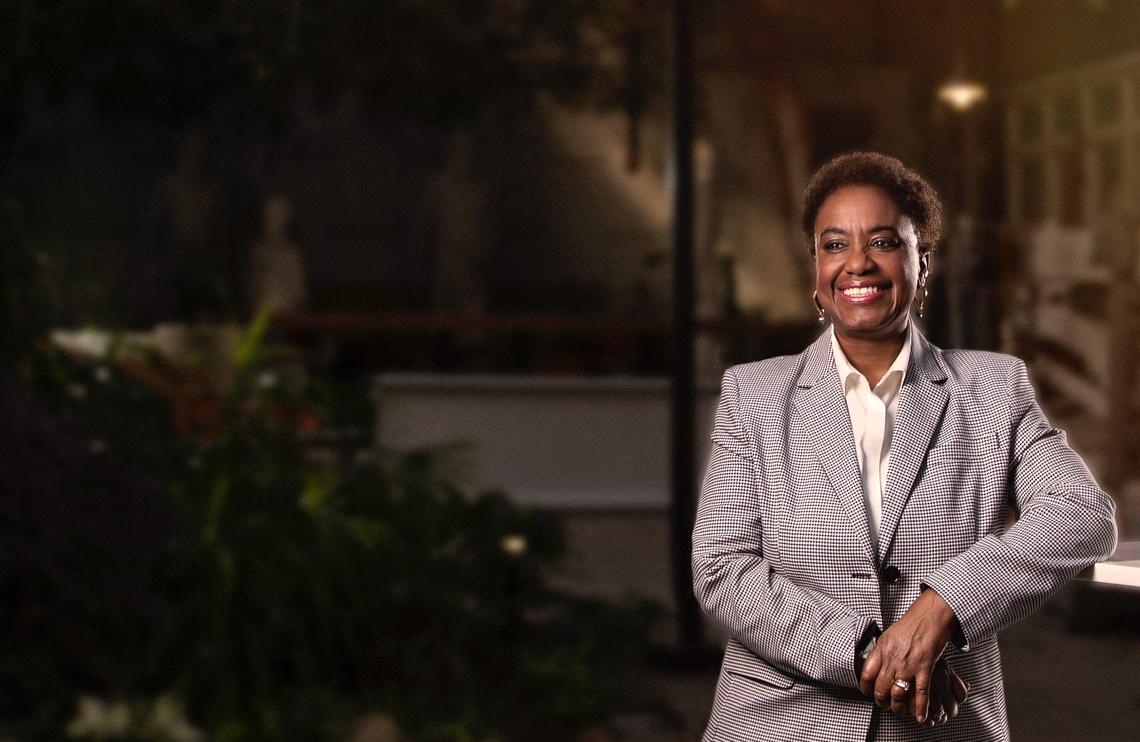
Dr. Malinda Smith is a professor and (vice-provost) of Equity, Diversity and Inclusion.
Nextgen EDI change being fuelled by a leader committed to creating inclusive and equitable pathways
Dr. Malinda Smith is a driving force behind UCalgary’s momentum to ensure all equity-deserving groups have equitable opportunity to succeed
Dr. Malinda Smith is knowledgeable, experienced, committed, and determined. As one of Canada’s foremost researchers and academic-administrators in the areas of equity, diversity, anti-racism, and inclusive practices in higher education, she has a vision of inclusive and equitable pathways for accessibility and success for all within the UCalgary’s community. And she’s working hard to build the EDI infrastructure, collaborative teams, and communities of practice necessary to see it through.
In her role as inaugural vice-provost in the Office of Equity, Diversity and Inclusion, Dr. Smith unapologetically names and challenges inequities, arguing that “without acknowledgement, and a commitment to action, meaningful change is not possible.” Smith advocates for equity as fundamental fairness that individuals deserve, not because we’re nice or legislative compliance requires it, but because unfairness is a threat to human dignity, human flourishing, and the future of great public universities.
Dr. Smith’s many accomplishments make her uniquely qualified for this role. Before joining UCalgary in August 2020, she was a professor of political science and Provost Fellow EDI Policy in the Office of the Provost at the University of Alberta, and a Pierre Elliott Trudeau Foundation Fellow researching Black trailblazers in education, law, and politics. Dr. Smith is an author, editor and co-editor of numerous books in political science and trans-disciplinary studies. These works include the co-authored book, The Equity Myth: Racialization and Indigeneity at Canadian Universities (UBC Press, 2017), which was funded by a four-year SSHRC grant; the co-edited Nuances of Black in the Canadian Academy (UofT Press 2022), and Critical Concepts: An Introduction to Politics, 6/E under-revision with Oxford University Press. Dr. Smith is also the “From the admin chair” contributor for University Affairs Magazine. In recent years, she was the recipient of the Susan S. Northcutt Award from the ISA Women’s Caucus, and the Equity Award of the Canadian Association of University Teachers and was named as a Distinguished Scholar by the International Studies Association-Canada, and as a “2021 Compelling Calgarian” by the Calgary Herald.
At the UCalgary and nationally she is engaged in efforts to embed EDI in the research ecosystem. She is the Chair of the University’s Dimensions EDI Executive and Steering Committee, and the university’s Equity Chair for the Canada Research Chairs (CRC) Program, both roles previously held by Deputy Provost Florentine Strzelczky. Until January 2021, Dr. Smith served on the Tri-Agency’s Advisory Committee for Equity, Diversity, and Inclusion Policy for the CRC Program, where she chaired the Peer Review Panel for the institutional CRC Action Plans. Last month, Dr. Smith was appointed to SSHRC Governing Council, a first for a UCalgary faculty member. She also serves on the Statistics Canada Advisory Committee on Immigration and Ethno-cultural Statistics.
Since launching the EDI portfolio, Dr. Smith embarked on an extended virtual listening and learning tour of the university community, meeting with all deans and many unit leaders, and actively engaging with students, faculty, staff, senior leaders, with the aim of getting their perspectives on the strengths, gaps, possibilities and hopes for a next generation approach to EDI and equitable pathways for members of equity-deserving groups – women, Indigenous peoples, visible/racialized minorities, persons with disabilities, and members of the LGBTQ2+ communities.
In a short time, she has:
- Built collaborative university relationships to advance equitable pathways and shape the next generation of research-informed, evidence-based policy making;
- Partnered with Office of Institutional Analysis to complete and launch the EDI Dashboard;
- Launched with the Provost, the Office of the VPR and in collaboration with Indigenous Engagement, the Provost’s Postdoctoral Fellowship for Indigenous and Black Scholars;
- Supported the Student leaders in their Quality Money applications, including for the Violet King Engaged Scholar Award, and the transdisciplinary African Studies Program;
- Held numerous internal workshops that challenge a checkbox and technocratic approach to EDI, colonial legacies, racism, and discrimination;
- Initiated the Courageous Conversations Speaker Series to bring to our (virtual) campus renown researchers, practitioners and activists to deepen our understanding and improve our practices in equity, human rights, anti-racism, harassment and complaint;
- Represented UCalgary in the city and nationally on EDI, anti-racism, Pride, Black History Month, Trans Day of Visibility, Trans Day of Remembrance, among others;
- Formed a new office, built a new team, forged alliances, and created cross-institutional committees to get the hard work of EDI done.
She’s done all of this during a pandemic, and in a virtual environment where she’s never met many colleagues face-to-face. And it has not slowed her down.
“We’re in a pandemic, and this is challenging for building relationships. However, we can’t wait. Yes, we have done some things very well, but there are also gaps, and many areas where our community is calling for a new vision, concrete actions on what we are not doing, and for changes in how we are doing things. We can’t keep pursuing ideas, policies, and practices that have not produced needed change in the representational diversity of students, staff, faculty, and leadership. With an equitable pathways approach we are moving beyond generic, checkbox approaches to EDI that have failed higher education everywhere. We cannot treat equity-deserving groups as a monolith, as a one-size-fits-all approach; rather, we must do the difficult but necessary, work to develop research and data-informed understandings of what is required for us to advance equitable pathways for women, Indigenous peoples, visible/racialized minorities, persons with disabilities, and LGBTQ2S+, as well as religious, linguistic and cultural minorities. And we must develop a sophisticated intersectional analysis of their relationship to structures at the university. As a community that strives for academic and workplace excellence, for inclusive excellence, this means that we must cultivate an inclusive leadership mindset and campus community that is respectful of all equity-deserving groups in the workplace, in teaching and learning, research and scholarship, service and administration, community engagement, and across our governance and leadership structures.”
She continues, “This requires us to look at ourselves closely, to see if we are modelling in our everyday practices what we say in our rhetoric and statements. As Shakespeare put it in Othello, we must avoid, “Mere prattle without practice” – talk is cheap. What we need, instead, is accountability measures. Any barriers and biases, including attitudinal, disciplinary, rank or other that systematically excludes or limits some members of our community from participating and thriving in all spheres of university life, from having a seat and voice at the decision-making tables on matters that affect us all, collectively, must be acknowledged and transformed. I am hopeful. Of course, this is easier said than done, and we will need for all of us to hold each other accountable and to develop metrics to monitor outcomes over time. Courage is indispensable to this often difficult work.”
UCalgary is on a path of change. “Change is not easy, and can be unsettling. Nextgen EDI requires a new vision, and a renewed commitment to human rights and dignity, and an institution-wide infrastructure to deliver, even as we are mindful of the need for belt tightening.” Dr. Smith, the collaborative cross-campus EDI teams and communities of practice she is cultivating, are leading the way.
Meet the EDI Team

Dr. Malinda Smith (she/her) – Vice-Provost, Equity, Diversity and Inclusion
Dr. Malinda S. Smith is the inaugural Vice Provost (Equity, Diversity, and Inclusion) and a professor of political science professor at the University of Calgary. She serves on the Social Science and Humanities Research Council’s Governing Council, Statistics Canada Committee on Immigration and Ethnocultural Statistics, and Working Group on Black communities in Canada, and the Inter-Institutional Advisory Committee for National Dialogues and Action for Inclusive Higher Education and Communities. She is a former Vice President Equity Issues for the Federation for the Humanities and Social Sciences, and currently serves as Chair of its Advisory Committee on Equity, Diversity, Inclusion and Decolonization.
Dr. Smith has published widely in areas of international and comparative politics, and equity, diversity, and human rights. She is a coauthor of The Equity Myth: Racialization and Indigeneity at Canadian Universities (2017), and a coeditor of the forthcoming book, Nuances of Blackness in the Canadian Academy (UofT Press, 2021). She is also editor of Securing Africa: Post-9/11 Discourses on Terrorism (2010), Beyond the African Tragedy: Discourses on Development and the Global Economy (2006), and Globalizing Africa (2003); and coeditor of Critical Concepts: An Introduction to Politics, 6/E under revision with OUP; and States of Race: Critical Race Feminism for the 21st Century (2010).
Dr. Smith is a 2018 Pierre Elliott Trudeau Foundation Fellow. She’s won numerous awards and honours, including the 2021 Compelling Calgarians, the 2020 Susan S. Northcutt Award from the International Studies Association, and the 2020 Rosalind Smith Professional Award from the National Black Coalition of Canada-Edmonton, an 2020 100 Accomplished Black Canadian Women Honouree, 100ABCWomen (Toronto), 2018-2019 Distinguished Scholar Award from the International Studies Association-Canada, a 2018-20 Provost Fellow EDI Policy, University of Alberta, 2016 HSBC Community Contributor of the Year, 2015 Equity Award from the Canadian Association of University Teachers, 2011 Academic Woman of the Year from the University of Alberta Academic Women’s Association.

Ms. Dahlia Khajeei (she/her) – Senior Advisor EDI Institutional Analysis
Dahlia Khajeei, BSc, MPH, PhD Candidate (she/her) is the Senior Advisor in the Office of Equity, Diversity and Inclusion. She obtained her Bachelor’s in Biological Sciences in 2010 from the University of Alberta and her Master’s in Public Health in 2014 from the University of Saskatchewan, where she finished her degree at the Curtin University of Technology in Perth, Australia. She currently is a PhD Candidate in Public Health and Health Systems at the University of Waterloo under the supervision of Dr. Jose Arocha. Dahlia’s research focuses on the health literacy and numeracy of immigrant mothers by examining comprehension as a situated, sociocultural practice. Adopting methods from cognitive science, her research on health literacy and numeracy views information processing for its tight relationship between thought and the world, and loose relationship between language and thought.
Dahlia has over a decade of experience in healthcare systems across western Canada (BC, AB, SK). Her particular specialities include health information management governance, health program planning, data integrity and quality, and evaluation. Dahlia is also a Lecturer and Subject Matter Expert at Conestoga College and the Southern Alberta Institute of Technology. Her professional endeavours include PROSCI’s Change Management certification, AIIM’s Enterprise Content Management certification, and the Centre for Teaching Excellence’s Certificate in University Teaching. In her spare time, Dahlia mentors female scholars in Science, Technology, Engineering, and Mathematics who are navigating the transition from high school to university. Dahlia is a strong advocate for the health and educational equity of visible minority populations in Canada.
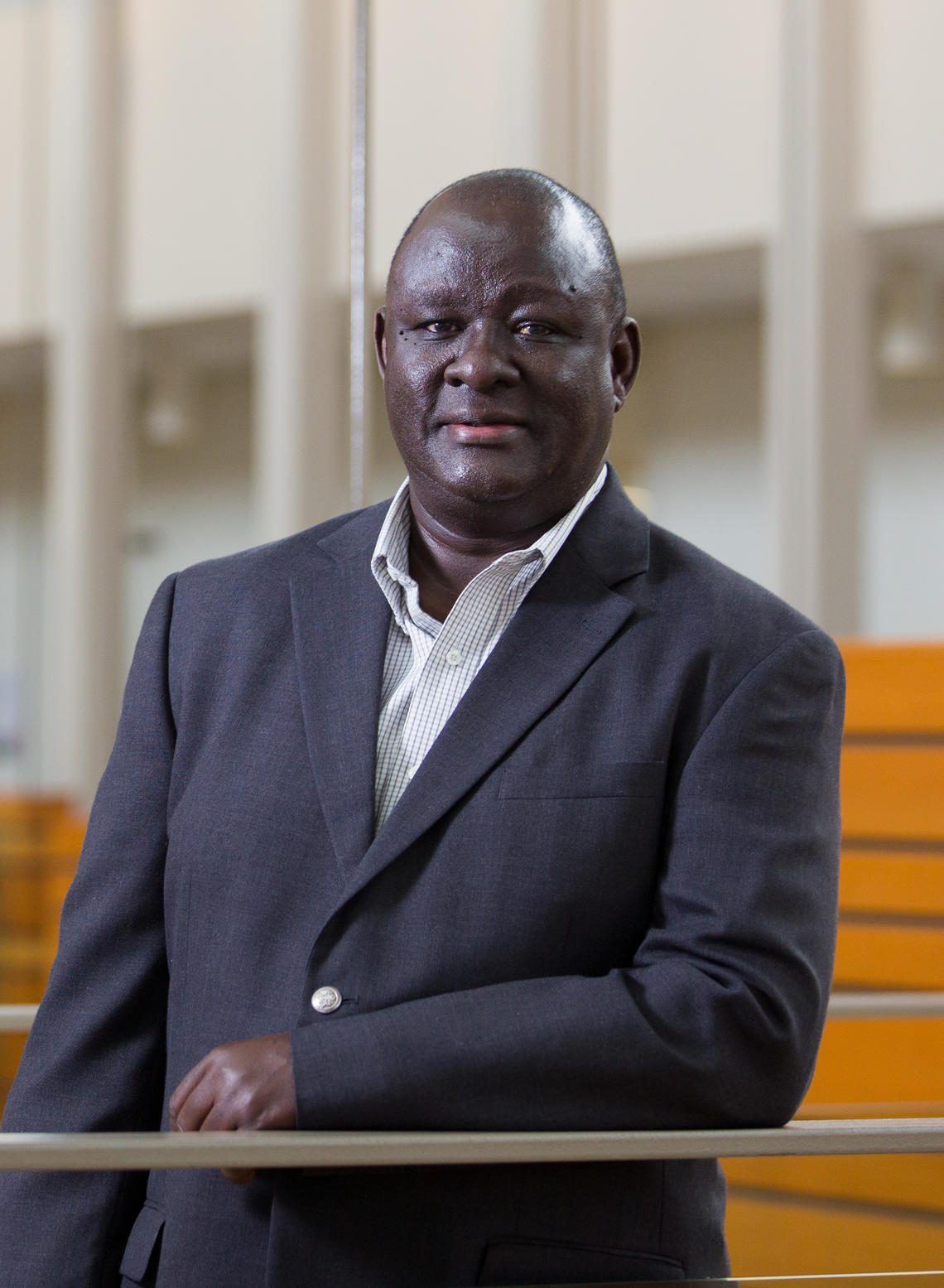
Dr. William Yimbo (he/his) – EDI Education Specialist
Dr. William Yimbo holds a bachelor’s in Political Science and Economics from the University of Nairobi, Kenya, and also a graduate diploma in International Relations from the Institute of Social Studies in the Netherlands, He also has his master’s in Public Affairs, and a PhD in Mass Communication from the University of Minnesota, USA. Dr. Yimbo develops and delivers equity, diversity, and inclusion workshops to staff, faculty, and students across the university.
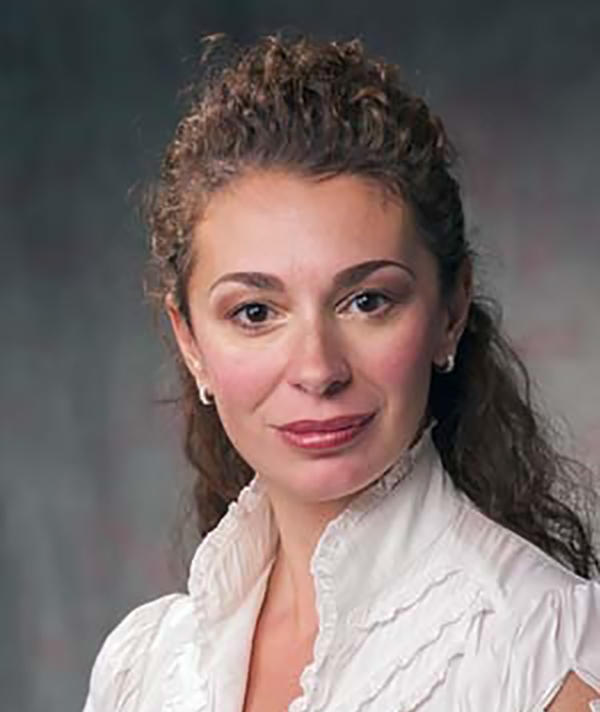
Ms. Svetlana Ponic (she/her) – Executive Assistant
Svetlana Ponic holds bachelor’s degree in Communications and Public Relations from the University Institute for Modern Languages (IULM) in Milano, Italy. She has part of the UCalgary staff community since 2012, joining the Office of EDI in 2020. Ponic is driven by the values of the EDI team and, since joining, has been a valuable resource in helping the small-but-mighty team build its momentum as the team tackles some of the largest issues of our day

Ms. Furyal Hussain (she/her) – Anti-Racism Research Assistant
Furyal Hussain is completing her Bachelor of Arts in Law & Society with a minor in Political Science and graduating from UCalgary this Summer. Since 2019, she has been involved in local and on-campus volunteering initiatives. She volunteers at the Calgary Courthouse and works with diverse people every day which fuels her passion for equality and social justice.
EDI Lead Members
For the list of EDI lead members, click here.
Celebrating Asian Heritage Month
The month of May is a time to recognize and celebrate the contributions of the Asian community at the University of Calgary, in the city, and across Canada. The theme for 2021 is “Recognition, Resilience, and Resolve.” It highlights the many historical and contemporary contributions of Asian Canadians, as well as contemporary challenges in the midst of the Covid-19 pandemic.
Today, Asian Canadians constitute over 20 per cent of Canadian society. Asian Heritage Month encompasses the diversity of Asian communities in Canada – east, west, and south Asian diasporas, Filipinos, among others – and acknowledges their historical and present-day influence on all spheres of Canadian life – in education, politics, business, sports and culture. Over time, Asian Canadians have showed remarkable resilience, whether from experiences of the Chinese ‘head tax’, to the Komagata Maru incident in which South Asians were denied entry to Canada, or the internment of Japanese Canadians. Today, in the midst of the pandemic, many Asian Canadians face rising incidences of racism and racial violence.
UCalgary is a diverse campus that seeks to be a welcoming place of learning and working for members of Calgary’s largest visible minority populations, including those of South Asian, Chinese, and Filipino descent. Asian Canadians have played an important role in the university’s history in the development of our daily operations, student experience, education, research, and innovations. During the month we are paying tribute to the generations of Asian communities who have enriched UCalgary and Canada’s history, and we encourage you to participate in the activities in celebration of Asian Heritage Month at UCalgary and beyond. We also encourage members of our community to actively work to end anti-Asian racism.
Members of the Psychology Department’s Equity, Diversity and Inclusion Committee will offer a four-part blog post series to discuss the significance of anti-racist work in the Asian-Canadian experience. UCalgary’s partnership with the Sikh students and faculty, in kickstarting the Sikh Studies program at the university, is a result of strong collaborative efforts to promote the traditions in academia. These initiatives are among several opportunities for UCalgary’s community to acknowledge and reflect on the unique challenges Asians face in Canada.
May serves as a call to action on all forms of anti-Asian stereotyping, racism, discrimination, and violence directed against. We also want to celebrate the achievements, creativity, and innovations of Asian Canadians across the generations. For example, just last year, Salma Lakhani became Alberta’s 19th Lieutenant Governor. Outgoing mayor Naheed Nenshi, Calgary’s first Muslim to serve as the city’s mayor, is completing his third term on a high note. The historic Chinatown in Calgary remains a vibrant, diverse community that represents a variety of Asian cultures from around the world.
The University of Calgary is committed to an equitable, diverse, and inclusive university and community in which Asian Canadians, as all members of society, can flourish.
In the midst of this pandemic, it is as important now, as ever, for the UCalgary community to recognize the resilience and resolve of diverse Asian communities. It is important to celebrate their achievements and provide supportto ensure a welcoming and inclusive experience at the institution and the broader society.
Events this month
This month, Dr. Smith will moderate an event with UCalgary International on the 2021 theme for Asian Heritage Month, “Recognition, Resilience and Resolve”. Learn more and register here.

Statistics Canada, 2016.
Statistics Canada Report
In celebration of Asian Heritage Month, Statistics Canada released By the Numbers: Celebrating Asian Heritage Month that highlights the contributions of the Asian-Canadian community.
Additional Resources from Statistics Canada
- By the Numbers Fact Sheet
- By the Numbers Infographic
- Perceptions of personal safety among population groups designated as visible minorities in Canada during the COVID-19 pandemic
- Infographic: COVID-19 and visible minority’s groups’ perception of safety
- The mental health of immigrants and refugees: Canadian evidence from a nationally linked database
For additional resources on UCalgary’s commitment to equity, diversity and inclusion, visit https://www.ucalgary.ca/equity-diversity-inclusion/education-and-training
Combatting anti-Black Racism and Promoting Racial Equity at UCalgary
The horrific death of George Floyd on May 25, 2020, while he laid prone on a Minneapolis street, hands cuffed behind his back, and police officer Derek Chauvin’s knee on his neck, was caught on mobile phones and police body cams, and widely shared on social media. Despite pleading “I can’t breathe” over 20 times, and despite the bystanders pleading that attention needed to be paid to Floyd’s well-being, Chauvin remained nonplussed. Nine minutes later Floyd took his last breathe, a cruel and usual death. On March 8, 2021, Chauvin, who had faced over 18 prior complaints and disciplined twice, was finally held accountable when he was convicted of Floyd’s murder.
The Floyd case was not the first, and likely not the last instance of such deadly encounters. It might be seen as the proverbial feather that broke the camel’s back, or the spark that lit the flame that mobilized anti-racism movements in Calgary, across Canada, and the world over. In the midst of a global pandemic, and the Black Lives Matter mobilization that sparked a racial reckoning, members of the UCalgary organized to combat anti-Black racism and advocate for Black equity and inclusion. The Floyd case also drew attention to systemic racism in Alberta, and across Canadian institutions such as the police and the criminal justice system; the health care system; and in the K-12 and post-secondary sector.
It is in this context, of a global pandemic and the global mobilization against anti-Black racism that the new UCalgary Office of Equity, Diversity and Inclusion (OEDI) opened in August 2020, and began the difficult work of envisioning, advocating for, and developing approaches to equitable pathways for all members of the UCalgary’s campus community. At the same time, the work to combat anti-Black racism, and all forms of racism, racial bias, and racial discrimination began – in a virtual environment. The UCalgary released a statement on anti-racism (June 1, and June 24, 2020), in response to the Scholars Strike (September 4, 2020), and to mark the International Day for the Elimination of Racial Discrimination. The OEDI created a “Taking Action Against Anti-Black Racism” resource.
A number of deans have released anti-racism statements including, for example, the Deans of Arts, Business, Medicine, Science, and Social Work, and several have created an anti-racism task force or committee. At the micro-level, a few departments have also released anti-racism statements including, for example, Biological Sciences, History, and Psychology. Four common calls are evident across these responses: (1) need to increase the diversity of students, staff, faculty, and leadership; (2) the need for anti-racism policy and mechanism to address racial discrimination; (3) more equitable recruitment and student admission, and faculty and staff hiring; and (4) equity and inclusion policies for historically under-represented and equity deserving groups.
Some of the strongest responses have been student-led action plans, including the UCalgary Black Law Students Association (BLSA), the Black Medical Students Association (BMSA), and the Students Union. The students’ calls to action highlight a number of needs: (1) to increase diversity in the overall student, staff, faculty, and senior leadership; (2) remove financial barriers to university education, including through scholarships and paid internships; (3) increase enrollment of, and opportunities for, Black students; (4) access to culturally appropriate advisors, mentors; (5) need for mental health supports and professionals with cultural experience with Black, Indigenous, and People of Colour (BIPOC) communities; and (6) mandatory anti-racism and racial bias education and training for the university community.
The OEDI pursued a three-prong approach to anti-racism engagement, racial, literacy, and anti-racism education. The Courageous Conversation Speaker Series webinars educated members of the campus community on racism, racism denial, complaint, and affective responses that can derail anti-racism conversations. Several workshops were held with university leadership, including on Inclusive Leadership in Times of Crisis and Change: Towards a more equitable, diverse, and inclusive university (December 15, 2020), and Anti-Racism Leadership in the University, an ALA Dean’s Session (January 20, 2021).
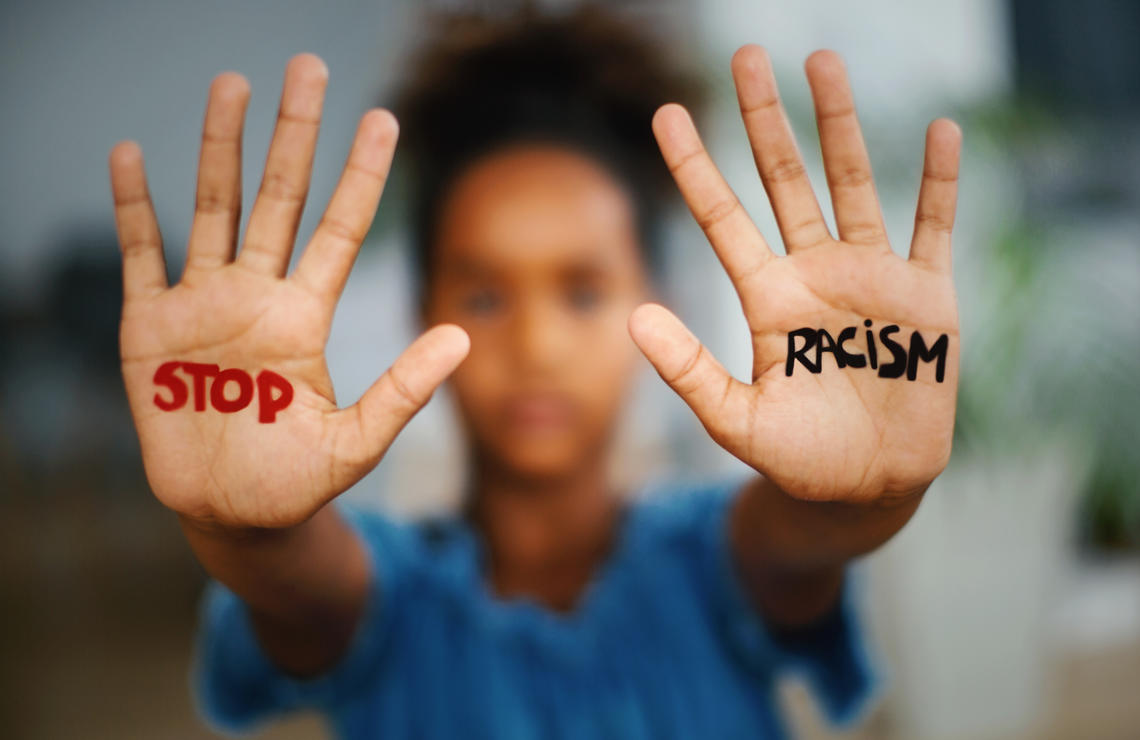
The OEDI also engaged local anti-racism consultant Cynthia Okafor to facilitate three racial literacy and anti-racism education workshops for the university community: ‘Dismantling Anti-Black Racism’ for Black faculty, clinicians, staff, and students; ‘Anti-Racism 101’ for UCalgary students; and ‘Anti-Racism: A Roadmap Towards Action’ for faculty-level EDI leaders and members of the EDI network. The powerpoint presentations were made available as resources for members of the University community.
Nationally, the UCalgary became an early institutional member of the National Dialogues and Action (ND&A) for Inclusive Higher Education and Communities. The dialogues were held virtually on October 1 and 2, 2020, with sessions on Black student, staff and faculty access and success; inclusive decision-making structures; inclusive teaching, learning, and curricula; mentoring support, networks and well-being; and the responsibilities and obligations of non-Black peers, supervisors, and partners. Vice-Provost Malinda Smith, a member of the Inter-Institutional Advisory Committee, delivered a talk, a ‘Critique of Deficit Model and Critical Introspection for Black Inclusion’. Former Provost Dru Marshall spoke in a session on ‘Allyship and Sectors’.
The last session of the ND&A focused on co-creating the Scarborough Charter and next steps. During an extensive engagement process at the UCalgary between March 22 and April 7, the draft Scarborough Charter on Anti-Black Racism and Black Inclusion was discussed at various levels of the UCalgary governance, with Black, faculty and student leaders, and the Dimensions EDI Executive and Steering Committees. The aim of the ND&A was to develop concrete action and accountability on anti-Black racism and Black inclusion, and the Charter is the next step to institutionalize the support. The UCalgary’s endorsement of the final Charter will help deepen the institution’s commitment to systemic change.
Additional Resources
- Taking Action Against Anti-Black Racism (UCalgary Office of EDI)
- Black on the Prairies (CBC)
- Black History Month at the UCalgary
- Black on Campus - CBC Fifth Estate (Vice Provost EDI Malinda Smith)
- Anti-Black Racism on Campus (Vice Provost EDI Malinda Smith)
- Collaboration for Change: Eliminating Systemic Racism in Calgary (UCalgary Office of EDI)
- Racial Equity leadership in Covid Times (University Affairs)
- National Dialogues and Action for Inclusive Higher Education and Communities (UToronto)
- Repository - National Dialogue and Action for Inclusive Higher Education and Communities (UToronto)
- REDI@Work Podcast with Dr. Malinda Smith, Vice-Provost of EDI at the UCalgary (Vice Provost EDI Malinda Smith)
- Webinar | The Power of Stories to Shape a COVID Recovery | Pluralism and Global Citizenship (UCalgary)
Bold conversations drive knowledge, understanding, and change
Courageous Conversations challenges participants to take stock of the research on, and knowledge of, systemic, institutional, and interpersonal inequities
Bold, at times uncomfortable, learning-based conversations shaped by leading-edge research, case studies, lived experience, and awareness of promising practices are needed to drive lasting change in higher education. Such knowledge and awareness of topics issues that enable or impede the creation of equitable pathways that are fair and inclusive are at the heart of the Courageous Conversation Speaker Series launched by the Vice-Provost EDI in the Fall 2020. Some issues are more familiar, such as addressing the harms faced by those who have been wronged, confronted unfair barriers – conscious and unconscious, subtle and blatant –limit entry, participation and success within the university. Some issues are less obvious, such as how informal practices may exclude and marginalize, or how the design, interpretation, and implementation of policies and procedures may reinforce inequities.
The challenge and purpose of Courageous Conversations is first and foremost to educate the campus community and beyond about equity. It is about EDI literacy drawing on the best research, knowledge, and practices. This education is to help participants understand the complex intersection of ideas, knowledge, beliefs, behaviours, and practices shape individuals, systems, and structures and what needs to be done to ensure responsibility and accountability. “These conversations are critical to EDI education and the knowledge necessary for identifying and removing barriers, cultivating an inclusive mindset, and creating equitable pathways for senior leadership, faculty, staff, and students to flourish at the UCalgary,” states Dr. Malinda Smith, vice-provost of Equity, Diversity and Inclusion.
“My approach to EDI differs from those who think it is about the right attitude or being a good person. These are all vital to taking EDI seriously. This inclusive mindset is necessary, but not sufficient, as it can coexist with deep structural and systemic inequities. In a research-intensive university like the UCalgary, EDI has to be informed by the best research, quantitative and qualitative data on equity-deserving groups, by experiential knowledge, and by direct engagement with the communities for whom initiatives are designed, too often without consultation. For example, for decades, scholars have researched and talked about racism, harassment, exclusion from decision-making tables, about the brick walls faced by so-called diversity workers, and about the need for intersectionality. There’s no shortage of compelling research. The gap is between rhetoric and practice. It’s about having the difficult, contentious, unsettling conversations that challenge the prevailing institutional relationships shaped by inequities. Naming and discussing complex issues can also be profoundly unsettling. That’s where courage comes in, the need to have courage to say things that the comfortable do not want to hear. It’s about speaking truth to power, including to me, to ensure that we are not just talking about EDI but we are modelling a commitment to an equitable and inclusive university. . This complexity makes these courageous conversations even more important,” says Dr. Smith.
There’s a legal and moral imperative to understand and challenge barriers to participation across equity-deserving groups – women, visible/racialized minorities, Indigenous peoples, persons with disabilities, and LGBTQ2S+. Equity is a matter of justice, and fairness and all member of our community are deserving of human rights, human dignity, and fairness. This work is critical to the university’s academic mandate to attract, retain, and cultivate diverse students, postdoctoral fellows, faculty, staff and university leadership and to drive collaboratively towards excellence in everything we do. If we believe in this vision of an accessible, equitable, diverse, and inclusive university as essential to excellence, then we must proactively identify and eliminate barriers that limit members of our community from participating and flourishing in any aspect of university life.
“This is why each Courageous Conversation topic is carefully selected and features world renowned scholars who are also the best researchers, practitioners and community engaged scholars to lead these conversations. We need to set the bar high, to keep track of the best research on key themes and trends in EDI and this includes enhancing the breadth and depth of conversation on difficult topics so that we are part of the wave of change,” says Smith.
Courageous Conversations boasts some of the university’s largest attended webinars to date, attracting anywhere from 500 – 1000 participants per event. The last webinar with renowned British-Australian cultural studies scholar Sara Ahmed included over 1000 participants from 26 countries. Many of the university and community participants are eager to understand systemic and institutional racism, harassment, bullying, micro-aggression, and how subtle and overt discrimination play out in our classrooms, in research and scholarship, in workspaces, and at decision-making tables at all levels of the university.
Courageous Conversations will run next fall and winter terms and will focus on the intersections of Decolonization and EDI, and is being designed to tackle the durable legacies of colonialism on higher education, and to inspire big, blue-sky thinking around how to unsettle and transform these legacies.
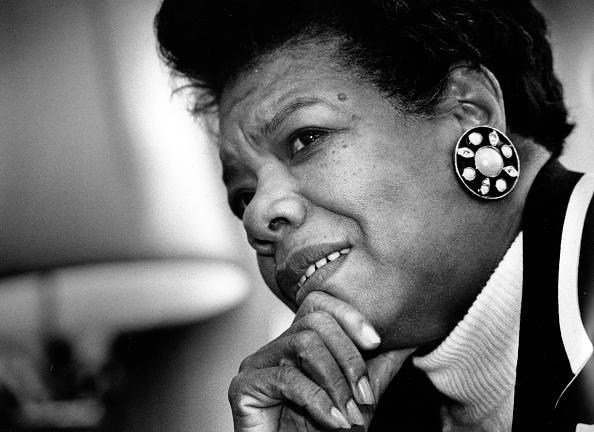
Dimensions helps UCalgary ensure it is able to attract the best researchers, faculty and staff
Great research institutions remove barriers and biases that obstacles to equitable participation
The UCalgary endorsed the Dimensions Equity, Diversity, and Inclusion Charter on May 30, 2019 Since then over 126 universities, colleges, CEJEPs and organizations have also endorsed the Charter. After successfully submitting an application in the summer 2019, the University was selected as one of 17 pilot institutions on August 22, 2019.
Dimensions was originally announced in the federal budget 2018 as a “made-in-Canada Athena SWAN” initiative. Since then it has become a bold and transformative initiative to expand EDI in the research ecosystem. Where comparable initiatives worldwide, such as SAGE in Australia, and SEA Change in the United States focus on women, and primarily on STEM disciplines, Dimensions’ vision and mandate are more ambitious, and inclusive of all five equity-deserving groups and all disciplines. Administered by NSERC, it supported by all three granting agencies, including SSHRC and CIHR.
The pilot program is one that takes seriously the need for a foundational commitment to reconciliation with Indigenous peoples, to accessibility, equity, diversity, and inclusion, and the need for equitable pathways to success within the academy. Over the past two years, the UCalgary has been implementing the principles outlined in the Charter, all aimed at removing barriers to research scholarship and artistic inquiry, and to working in the academy for under-represented groups including women, visible/racialized minorities, Indigenous peoples, persons with disabilities, and LGBTQ2S+.
The Dimensions pilot project is jointly led by the Office of the Provost and Office of the Vice-President Research, with an Executive and Steering Committee, and connected to teams across the university working collaboratively to foster transformational change in the research ecosystem and the broader university. Initiatives are underway to proactively identify and eliminate barriers and biases that create or reinforce inequities in the research ecosystem. These efforts recognize that a research community is inclusive of faculty, staff, students, and administration, as well as internal and external stakeholders.
Other key EDI initiatives include a state-of-the-art EDI Dashboard, which was created through a partnership between the Office of Equity, Diversity and Inclusion and the Office of Institutional Analysis, was announced in March. It set high standards for EDI data collection, monitoring, and transparency, and will support the creation equitable pathways to, and representation in, the university. As well, the inaugural UCalgary Provost`s Postdoctoral Fellowship for Black and Indigenous Scholars, which aims to recruit top-tier postdoctoral fellows, was announced in March. This postdoc initiative is future—focused in its proactive effort to help create the next generation of Black and Indigenous researchers.

All of these initiatives contribute to a more equitable, diverse, and inclusive university, to institutional transparency, and to wide-ranging collaborations that will drive systemic and lasting change. Among the principles is a recognition that advancing equity, diversity and inclusion is a shared responsibility by leadership.
As one of the 17 pilot institutions for the Dimensions pilot project, UCalgary has an opportunity to be a pacesetter in creating a qualitatively better campus communities for all its members, and for creating equitable and inclusive processes that are indispensable to research excellence and innovation.
“When we remove institutional and systemic barriers rooted in historical and contemporary inequities and biases, we are better able to recognize the depth and breadth of talent in the university and broader society, and we create the space to enable human flourishing in its fullest sense,” says Dr. Malinda Smith, Vice Provost of UCalgary’s Office of Equity, Diversity and Inclusion.
Over the next months, the Dimensions Executive, Steering Committee, and working groups will continuing working with the NSERC team, peer institutions, and the international network to co-constitute the Dimensions awards program. The UCalgary is already preparing a comprehensive institutional self-assessment, conducting gaps analyses, developing robust EDI policies, processes, and practices, supporting inclusive talent identification, nomination and selection processes, embedding EDI in research design, practice, collaboration and team-building, and facilitating equitable access to research funding and support. These initiatives will also enable the UCalgary to apply for Dimensions EDI certification.
“Removing barriers is critical to UCalgary’s Eyes High vision of being a leading research institution. When we are open to attracting and retaining the widest pool of qualified students, staff, faculty and university leadership available to us, we are more likely to achieve new levels of success. This success will be because of our combined talents that create new knowledge, fuel creativity and innovation and, in turn, reinforce research excellence,” says Dr. Smith.

Riley Brandt, University of Calgary
Annual EDI Awards recognize change-makers who are building a more diverse, inclusive campus community
UCalgary celebrates its community members who are creating a more equitable campus
The Annual EDI Awards are among the UCalgary’s primary opportunities to celebrate the outstanding contributions made by members of the university who are actively engaged in making the campus more accessible, equitable, diverse, and inclusive. Initially known as the Diversity Awards, the name changed to dovetail with the creation of the new Office of Equity, Diversity, and Inclusion.
The awards recognize the full range of initiatives and activities that students, faculty, and staff, individually, and together, engage in to ensure all who are in the university community have equitable opportunities, and can flourish. These EDI champions recognize that cultivating an environment free from obstacles, barriers, biases that limit human potential, and harassment and discrimination behaviour that violate human rights and human dignity are incompatible with a commitment to fairness and excellence. Their active, indeed, proactive engagement
This year’s awardees show that initiatives to effect change by embedding accessibility equity, diversity, and inclusivity are happening throughout campus, organized and led by students, staff, professors, and collaborative teams alike. This year’s outstanding nominees were many, and they highlight the depth and breadth of EDI initiatives and the magnitude of their impact on the campus community.
This year’s Equity, Diversion and Inclusion Awards selection process was chaired by OEDI’s Education Specialist William Yimbo. A virtual ceremony with President Ed McCauley, Provost Dru Marshall, and Vice-Provost Malinda Smith, was held during EDI Week, 1-5 February 2021. It included a keynote by Verna St. Denis, a Professor of Education and special advisor on anti-racism and anti-oppression, at the University of Saskatchewan, who spoke on, “An Indigenous Journey with Anti-Racist Education.” The awardees included:
- William Bridel, a Kinesiology professor committed to removing barriers to sport that are based on identity, gender and race;
- Keshia Holloman-Dawson, president of UCalgary’s Black Law Students’ Association who is addressing underrepresentation of Black and Indigenous students in the field of law;
- UCalgary’s Black Medical Student Association (BMSA) students who are fighting racism every day to advance opportunities for Black, Indigenous and people of colour in the medical program;
- and Renee Huntly, a staff member of UCalgary’s Indigenous Health Program who is known for the strengths of the relationships she forms with others and the support she has given in helping secure funding for key programs.
All of these award recipients deserve recognition for their change-making efforts that are contributing to making the UCalgary a more equitable, inclusive and accountable campus.
“We need, and are deeply appreciative of, these engaged individuals and groups in our community. They draw on their research, knowledge, and experience, and they commit time, intellectual and emotional labour, to removing obstacles to success, and by creating opportunities to excel. They are the catalyst for change that is moving our campus forward in the areas of equity, reconciliation, and respect,” says Dr. Malinda Smith, vice provost of the Office of Equity, Diversity and Inclusion. “Whether it be inequities experienced by women, Indigenous peoples, visible/racialized minorities, persons with disabilities, or LGBTQ2S, or issues of heath inequities, racism, transphobia, or sexual and gender-based violence, we need members of the campus community to be proactive in addressing them, and in ensuring a campus committed to equity, human rights, and human dignity. We are creating equitable opportunities and pathways because of the remarkable people and initiatives recognized by the 2021 UCalgary EDI Awards.”
Keshia Holloman-Dawson, President of UCalgary’s Black Law Students’ Association
Ms. Holloman-Dawson’s eyes are wide-open to the fact that Black and Indigenous students are under-represented in the field of Law and she’s doing something about it. She leads the Black Law Students’ Association’s (BLSA) Calls to Action, which initiated the Black Student Admissions Process and the inclusion of anti-racism training for students, faculty members and staff. She advocates for collaboration and removing barriers that often limit Black students from further education. She has been successful in her calls to reform formal mentorship programs, create multiple scholarships and an internship opportunity for Black and Indigenous students. She now sits on the Faculty’s EDI committee to provide further recommendations. Holloman-Dawson has been recognized externally as one of the City of Calgary’s 2020 Women of Inspiration for her ability to mobilize strategies that support diversification and inclusion at UCalgary and beyond.
Dr. William Bridel, Associate Professor in the Faculty of Kinesiology
Dr. Bridel challenges barriers that marginalized groups experience in the context of sport and physical activity. In his teaching, he encourages his students to evaluate privilege and how it has affected their personal access to sport and physical activity. His research, teaching, and leadership are focused on how systems of oppression in in Canada are reproduced in sport, limiting the participatory opportunities for and impacting experiences of LGBTQI2S+ and racialized persons. He is a supervisor for under-represented students in the Faculty of Kinesiology who has moved past guiding research and into the realm of allyship, co-learner, and advocate. His commitment to create equitable experiences in sport for all is infectious and others are joining him on this journey.
Renée Huntley, Indigenous Health Program coordinator
Ms. Huntley oversees activities for the recruitment and retention of Indigenous students in the Cumming School of Medicine. She also coordinates the Traditional Knowledge Keepers in Residence program, an ii ’taa’poh’to’p grant project, which provides students, faculty, and staff with the opportunity to engage with Elders through teachings, workshops, and ceremonies. This program strengthens relationships and provides critical support for Indigenous students through Indigenous knowledge exchange. Outreach initiatives include mini-medical school events for Indigenous youth and “Medicine as a Career” presentations, interview preparation and pre-admissions workshops that prepare future students for a career in medicine and set them up for success. Her outreach is tireless. In 2019, over 100 Indigenous High School students participated in IHP events and she supported more than 30 Indigenous MD applicants. Most recently, Huntley has pivoted IHP activities to an online format, but still successfully mentors and supports others while continuing her work to foster a culture of diversity and inclusion.
Calgary Black Medical Student Association
Led by Aya Ebdalla, Chidera Nwaroh, Keri McNiel-Inyani and Mursal Mohamud, the Black Medical Student Association (BMSA) is challenging the status quo, catalyzing critical dialogue and using their combined passion for equity and inclusion to create an evidence-based framework that guides anti-racism action at the Cumming School of Medicine. The goals of this team is to increase student and physician representation of Black, Indigenous People of Colour (BIPOC), better equip students to care for BIPOC patients; and promote wellness among BIPOC students. This group has successful achieved results. They’ve initiated a Black applicant admission process to address under-represented Black students in medicine and created a community of support to provide mentorship to BIPOC students. Additionally, this group spearheaded a student wellness program that connects BIPOC learners with BIPOC faculty and mental health professionals to ensure equitable access to resources and spaces and a comprehensive review of medical school curricula to ensure instructional materials are inclusive of unique needs of BIPOC patients. This is a group that doesn’t sit still. They drive change.
This year’s Equity, Diversity and Inclusion Awards are change-makers. They are making their environments and our community better.
For more information on the awards, watch the virtual ceremony here, visit the EDI Awards website and the spotlight on the 2021 award winners.


UCalgary launches EDI data dashboard to promote equity, diversity and inclusion
Collecting key demographic data is vital to identifying gaps and creating equitable pathways on campus
The Office of Equity, Diversity and Inclusion in partnership with the Office of Institutional Analysis launched a new Equity, Diversity and Inclusion (EDI) dashboard with key metrics on students, faculty, staff, and senior leadership. High-quality data within the dashboard will help to identify gaps and inform EDI policy moving forward. By launching the EDI dashboard, the UCalgary is committing to data transparency. These data on the campus community are a vital baseline for the commitment to identifying and removing barriers and biases and creating equitable pathways not only to enter the university but also to flourish.
For the OEDI, data, research, and knowledge are indispensable to advancing next generation equity, diversity, and inclusion (EDI) approaches that engage the whole university. Earlier approaches centred on employment equity and workforce data, such as hiring, retention, promotion, and segmentation of faculty, staff, and senior leadership. EDI enabled a more holistic approach that extends to academic mission of the university, including teaching and learning, and research and scholarship. It is concerned with the equitable pathways and experiences of faculty and staff, as well as students, postdoctoral fellows, adjuncts and governance bodies such as university senates, faculty councils, and boards of governors.
EDI data dashboard provide a necessary baseline for understanding whether the campus community is inclusive of historically under-represented groups such as women, visible/racialized minorities, Indigenous peoples, persons with disabilities, and LGBTQ2S+ communities. It also helps us evaluate mobility within the university. Other kinds of EDI data, for example engagement surveys, allow us to delve more deeply into questions of inclusion, and the qualitative experiences of members of the campus community. Climate surveys and focus groups help us to better understand the depth of inclusion, experiences of participation, perceptions of belonging or marginality.
“This equity, diversity and inclusion dashboard is a vital step in creating equitable pathways on campus. We can act on what we track,” says Dr. Malinda Smith, vice-provost (equity, diversity and inclusion). “Data can help reveal systemic inequities, the hidden barriers and obstacles that may block entry to the academy for historically under-represented groups. It can help identify diversity gaps, pay gaps, obstacles to entry and hurdles to promotion for specific groups,” she says. Data are important for helping us identifying problems and, as importantly, necessary for crafting proactive measures, policies and processes to ensure all members of our community can flourish.
“This dashboard draws from data collected across campus to provide a comprehensive look at equity, diversity and inclusion at UCalgary,” says Bruce Evelyn, vice-provost (planning and resource allocation).
It has been designed so that the information collected will help inform the development of policies and procedures to foster inclusion across campus. In the spirit of transparency and accountability, the data is being made available to the campus community and the public.
While the dashboard represents a step forward for UCalgary EDI metrics, data collection continues to evolve on campus, says Smith.
For instance, currently we do not provide fully disaggregated data, for example, for members of visible minorities, Indigenous peoples, and LGBTQ2S+. We are also not yet able to provide an intersectional analysis of individuals who are members of more than one under-represented group (e.g. representation or experiences of Indigenous or disabled women and men). Gender data is also currently collected in a binary form, with little information about our trans-community currently collected. The intention is for both of these gaps to be remedied in future as the EDI dashboard continues to evolve.
EDI dashboard is only the beginning
“Achieving equity is more than just measuring who is accepted into the University of Calgary, or who is hired to work here. We also need to monitor how equity-deserving groups — women, visible minorities, Indigenous peoples, LGBTQ2S+, and persons with disabilities — progress through our institution. Are there hidden obstacles to admissions, or to completing a degree or being hired and promoted or recognized for an award? These are questions about equity and fairness that we need to continue to ask ourselves,” says Smith.
“High-quality EDI data will be critical to helping us identify and then eradicate obstacles to success for all,” she says.

Overall Representation of UCalgary Employee and Student Groups for 2020

Overall Representation of UCalgary Employee and Student Groups for 2016

Black on the Prairies is a website that hosts stories about 200 years of Black people living in Alberta, Saskatchewan and Manitoba
Black on the Prairies – powerful, unforgettable, urgent stories about 200 years of Black people living in Alberta, Saskatchewan and Manitoba
Interactive website launched on Monday, 26 April
Dr. Malinda Smith, vice-provost of the Office of Equity, Diversity and Inclusion and Cheryl Foggo, UCalgary alumna, are on the advisory board of the new interactive CBC website called ‘Black on the Prairies’.
The path-breaking multimedia site, Black on the Prairies tells the multigenerational stories of Black people, young and old – and their heterogeneous communities - who, for over two centuries, have migrated to and called the prairies their home. Produced by CBC Manitoba's Ify Chiwetelu and CBC Saskatoon's Omayra Issa, and supported by an advisory board that included Smith and Foggo, they tell stories about Black people who have lived their lives under the canopy of big skies and amongst the toiled soil expected to provide life, and with the creativity, inventiveness and hard-work ethic that comes from prairie living. And yet, the stories, of the early Black pioneers, hidden stories of civil rights leaders, Black trailblazers, of being Afro-Indigenous, of honouring treaty relations beyond the state, of living as Black and trans, are unique, individual, sometimes heart-wrenching, often uplifting and with a sense of urgency to be told and heard in the echo of the Black Lives Matter movement and ongoing acts of anti-Black racism that are now aired almost daily on video for the world to watch.
“This is an incredibly important, smart, thoughtful, and moving project,” says Dr. Smith. “We need to learn, and sometimes unlearn, what it is like to be Black and live here. These stories, videos, music of Black life on the prairies must be told and taught in our schools and universities.”
According to the website, Black on the Prairies is about “exploring the past, present and future of Black Prairie life through the themes of Migration, Putting in Work, Black and Indigenous Relations, Politics and Resistance, and Black to the Future.
Website editors Omayra Issa & Ify Chiwetelu say “These stories explore the richness complexity, depth and multiplicity of Black Prairie life – past, present and future. They highlight achievements and histories that affirm the influence of Black life on the Prairies and challenge assumptions about its newness.”
The interactive website includes personal essays, articles, audio stories, images and more. Log onto Black on the Prairies here.
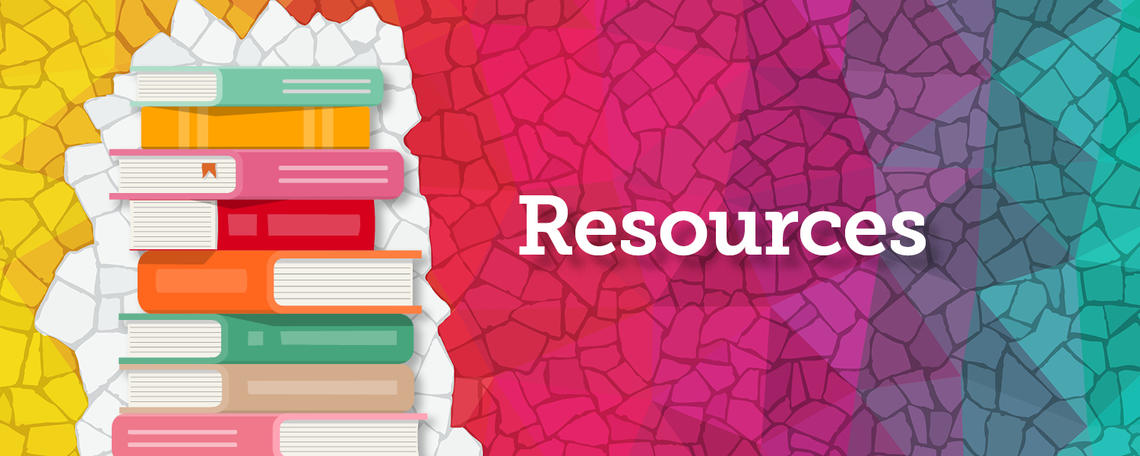
- City of Calgary's Commitment to Anti-Racism
- Gian Carlo Carra, July 7-9, 2020 Public Hearings on Systemic Racism, City of Calgary
- A UCalgary reflection on International Day for the Elimination of Racial Discrimination (March 22, 2021)
- A letter from President McCauley on anti-Black, anti-Indigenous and other forms of racism (June 24, 2020)
- Taking Action Against Anti-Black Racism, Office of Equity, Diversity and Inclusion, University of Calgary
- Courageous Conversations Webinars on racism, Office of Equity, Diversity and Inclusion, University of Calgary
- CBC The Fifth Estate - Students, staff and faculty at some of Canada's largest universities have experienced anti-Black racism on campus and were targeted if they spoke out.

